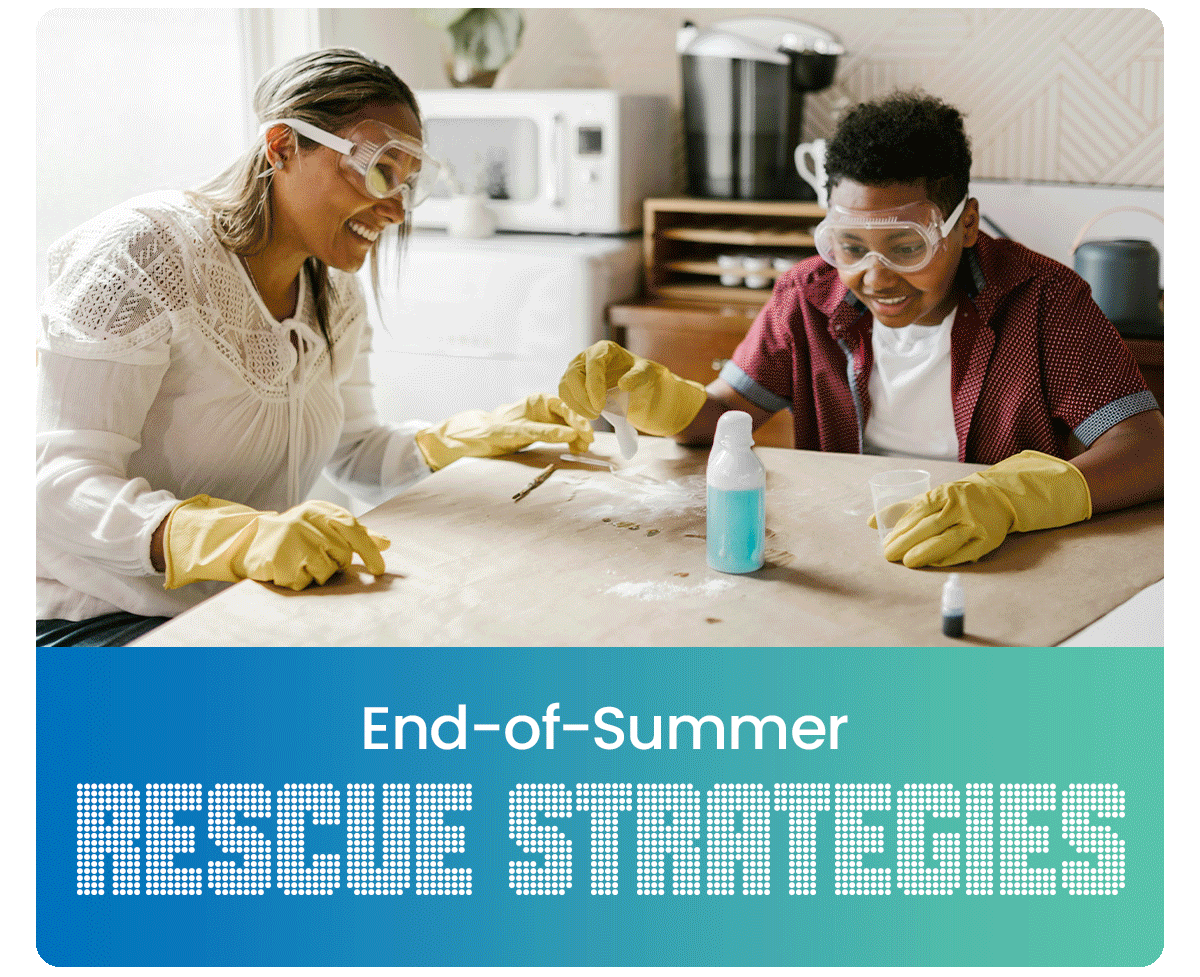As August approaches and the back-to-school countdown begins, many parents notice their children's summer routines starting to unravel. The initial excitement of summer freedom has worn off, and that "there's nothing to do" refrain becomes more frequent.
Meanwhile, parents are increasingly concerned about the "summer slide" - that documented phenomenon where kids lose academic ground during the long break.
But the final weeks of summer don't have to be a productivity wasteland! With the right approach, you can introduce structure that feels like fun while secretly preparing your child for the upcoming school year. Here's how to finish summer strong with activities that combine learning and enjoyment.
The Late-Summer Challenge
Research consistently shows that students can lose up to two months of reading and math skills during summer break. This learning loss is particularly pronounced in the final weeks of summer when routines have dissolved and the anticipation (or dread) of returning to school creates a strange limbo.
The good news? You can combat this slide with strategic activities that don't feel like homework.
Daily Structure That Doesn't Feel Like School
Monday: Financial Literacy Day
Turn Mondays into money-learning days! Provide your child with a small budget ($10-15) and challenge them to plan a family activity or meal. They'll practice math, budgeting, and decision-making skills while having fun.
Activity idea: Create a "Summer's End Savings Challenge" where your child tracks spending and saving for the last few weeks of summer, with a small reward for meeting a savings goal before school starts.
Tuesday: Language & Communication
Dedicate Tuesdays to building communication skills. This could be learning a few phrases in a new language, writing in a summer journal, or even practicing a presentation about their favorite summer memory.
Activity idea: Start a family book club for the last few weeks of summer, where everyone reads the same book and discusses it over Tuesday dinner.
Wednesday: Tech & Creativity Day
Wednesdays are perfect for combining technology with creativity. Instead of just playing games, challenge your child to create something digital.
Activity idea: Have your child design a digital scrapbook of summer memories or create a simple game that incorporates something they learned this summer. Programs like JavaScript Private Lessons can help transform consumers into creators.
Thursday: Planning & Organization
As the school year approaches, Thursdays can focus on building planning skills. Have your child help organize weekend activities, create schedules, or plan meals.
Activity idea: Create a visual countdown to school that includes fun activities for each remaining day of summer, helping children transition mentally while still enjoying their break.
Friday: Hands-On Science
End the week with kitchen science experiments that feel like play but reinforce scientific concepts.
Activity idea: Make ice cream in a bag to learn about freezing points and chemical reactions, or create a volcano with baking soda and vinegar while discussing chemical changes.
Weekend Flexibility with Purpose
While weekdays provide structure, weekends can remain more flexible but still purposeful:
Saturday: Dedicate to physical activity and outdoor exploration. Nature scavenger hunts, geocaching, or simply visiting a new park can keep bodies active and minds engaged.
Sunday: Focus on preparation and reflection. Help your child prepare for the week ahead while also reflecting on what they enjoyed about the previous week. This builds metacognition skills that will serve them well in school.
The Transition Advantage
Children who maintain some structure during summer, especially in those final weeks, show significantly better academic performance when returning to school. By implementing these daily themes, you're not just preventing the summer slide – you're giving your child a head start on the new academic year.
Parents who understand what summer slide is and address it early on have found that their kids perform better in the long run—developing outstanding learning habits that carry through high school and on to college.
Ready to finish summer strong? Start implementing these structured activities today, and watch your child return to school confident and prepared!
The Secret Ingredient: Balance
The key to rescuing the end of summer isn't filling every moment with structured activities – it's finding the right balance between structure and freedom, learning and play.
Parents who understand what summer slide is and address it early on have found that their kids perform better in the long run—developing outstanding learning habits that carry through high school and on to college.
Want to give your child a final summer boost that combines fun with learning? Our Virtual Camps and Private Lessons offer the perfect blend of structure, skill-building, and social connection to finish summer on a high note!
TL;DR
- Combat the "August Slump" with strategic structure that feels like fun
- Create a countdown calendar with daily activities to build anticipation
- Implement one-hour skill-building sessions in topics your child actually enjoys
- Start an end-of-summer family project that bridges to the school year
- Gradually reintroduce school-year routines to ease the transition
- Connect summer experiences to upcoming school topics for relevant learning
